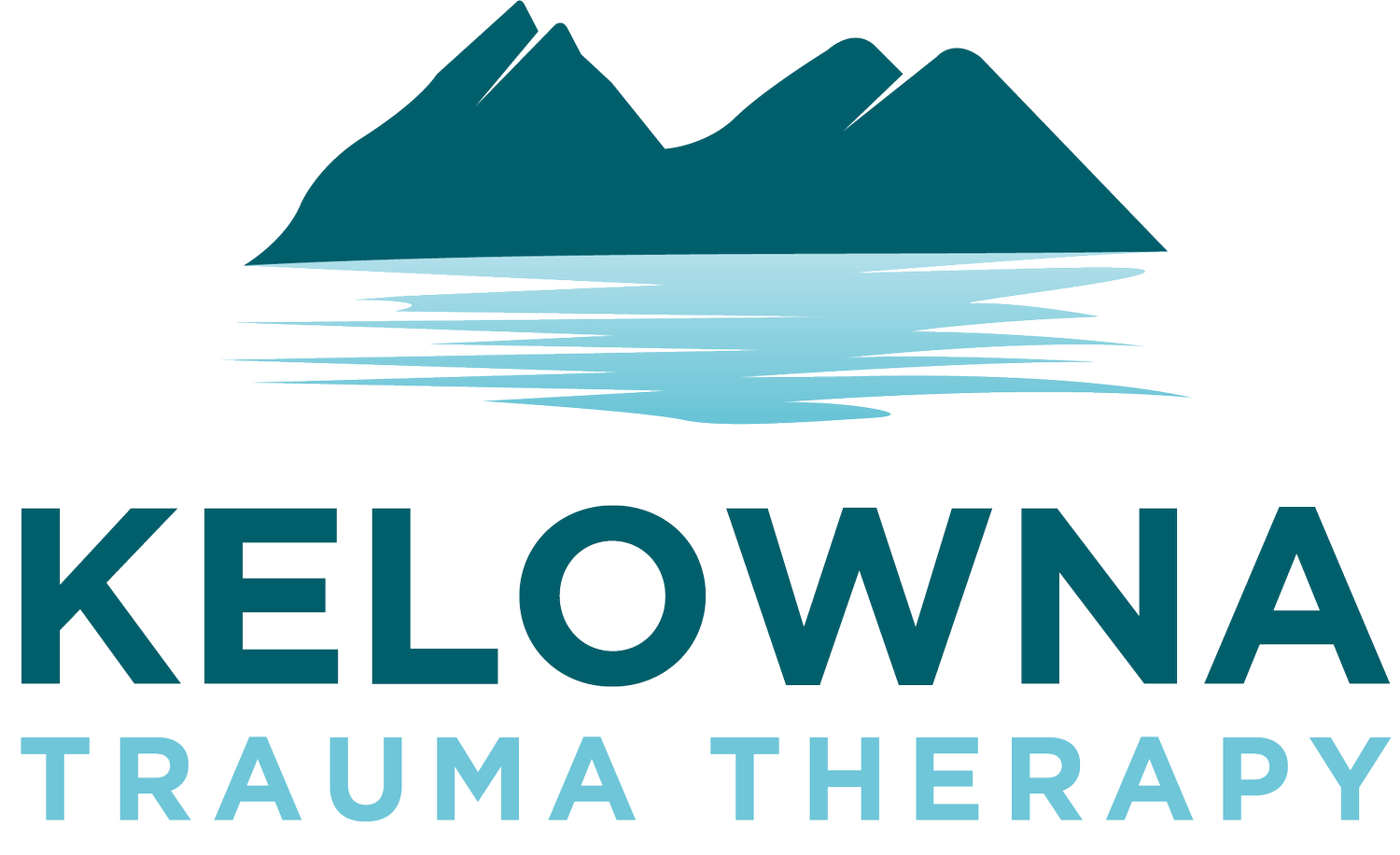
Trauma Therapy
Here at Kelowna Trauma Therapy, our mission is to provide effective trauma care to help you find relief. Through an integrative approach and evidence-based modalities, we will forge a clear path for inner healing. Our team offers trauma therapy to adults in Kelowna, Vernon, Penticton, Peachland, and the Greater Okanagan area.
Hurting is part of human nature. We live, love, fall and get back up again. Yet, healing is a journey that looks different for everyone. While some of us can surf turbulent waters and navigate painful moments, others wander and struggle to make it to shore.
You may have lost a family member or someone dear to you but haven’t been able to grieve. Perhaps you survived a dangerous event or violent incident and keep reliving the episode over and over again. You might have endured an abusive relationship that still weighs heavily on you. Or maybe you have been repeatedly exposed to people who have experienced trauma and are deeply affected by it.
No matter how big or small, trauma has the potential to linger and leave you adrift.
But with professional help, healing is possible.
If you feel stuck, lost, or overwhelmed by all the treatment options out there or want to help a loved one who’s hurting, we are here for you. Contact us to book a free consultation or schedule a trauma therapy session today.
What Is Trauma?
Trauma refers to our natural response to a threatening, frightening, or severely distressing event. Contrary to what films might have taught us, trauma is not solely caused by warfare or car accidents. There is a broad range of experiences, big and small, that can produce a traumatic response, such as:
Acute injury, illness, or medical procedure
Bullying or harassment
Childhood neglect
Discrimination
Divorce or breakup
Loss of a partner, family member, or friend
Military combat or terrorism
Motor vehicle accident
Natural disaster or adverse event
Physical or emotional abuse
Sexual assault
Violent attack or robbing
Trauma can be primary or vicarious
Primary or direct trauma might occur when individuals experience a traumatic experience firsthand.
Vicarious or secondary trauma can happen when individuals are repeatedly exposed to traumatic materials or people who have suffered trauma. This includes occupations in trauma-heavy fields such as health care professionals, domestic violence workers, law enforcement, first responders, or people affected by disturbing content (e.g., explicit news, violent stories, crime scenes, etc.).
Who Can Benefit From Trauma Therapy?
While some of us can process painful events and carry on, others remain “stuck” in trauma.
Unprocessed trauma may reside in our body and subconscious, altering our nervous system. It can impact our physical, emotional, and relational selves, triggering our fight, flight, or freeze response even when we are not in danger. These lasting effects of trauma are also known as post-traumatic stress.
Common Signs of Post-traumatic Stress
Avoidance of people, locations, or situations that remind you of trauma
Constant worry or nerves
Disturbing memories and thoughts about the incident
Extreme caution or hypervigilance
Fear of speaking about the traumatic experience
Flashbacks or nightmares that make you feel you are reliving the event
Guilt or shame
Helplessness and low motivation
Irritability or anger problems
Restlessness or trouble sleeping
If you are suffering from these post-traumatic stress symptoms or if trauma is affecting your quality of life, therapy can help.
How Can Trauma Therapy Help You?
Trauma therapy aims to help you process unresolved wounds so you can move forward with your life. You will meet with a licensed mental health professional to explore the corners of your trauma, discover how it’s manifesting in your mind and body, and achieve healing.
Types of Trauma Therapy
There are multiple forms of trauma therapy treatment, including:
Eye Movement Desensitization and Reprogramming (EMDR): Helps reprocess the memory of the traumatic event using bilateral stimulation (e.g., eye movements following an oscillating light, vibrating paddles, alternating tones, etc.).
Neurofeedback: Addresses trauma at the brain function level, identifying the areas of your brain that are misaligned and retraining it through gentle and non-invasive procedures.
Somatic Experiencing: Seeks to recognize, endure, and release posttraumatic stress stored in the body to find relief.
Walk and Talk Therapy: A combination of mindful movement and counselling that allows you to calm your mind, foster creativity and enjoy the benefits of physical activity.
Internal Family Systems (IFS): Supports you in getting to know all the parts or sub-personalities of your internal system and provides a model to manage any dysfunctions.
Our Trauma Therapy Approach
Perhaps you are hesitant about seeking help or have already tried a specific treatment that didn’t meet your expectations.
Here at Kelowna Trauma Therapy, we understand how cumbersome it is to find the right therapist and treatment. Our team of practitioners has experience in a broad range of therapeutic methods and follows a collaborative approach tailored to your unique needs.
First, we’ll do a thorough assessment to determine the best course of action for you. Trauma is our specialty, so we offer a wide variety of evidence-based options to support you in addressing and healing from trauma, including Eye Movement Desensitization and Reprogramming (EMDR), Neurofeedback, Somatic Experiencing, Walk and Talk Therapy, and Internal Family Systems (IFS).
We will monitor your progress and make adjustments accordingly. While you might access different modalities or see multiple practitioners, we’ll ensure you have a point of contact throughout the entire process. We will all work together to offer the most comprehensive, streamlined, and effective care for you.
Book a free consultation
If trauma is keeping you from savouring life, we are here to help. Schedule a free 15-minute consultation to get started. Or book your first trauma therapy session below.
